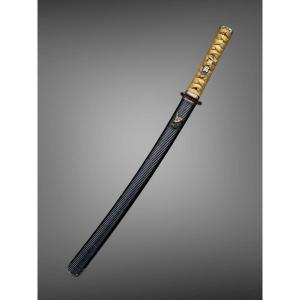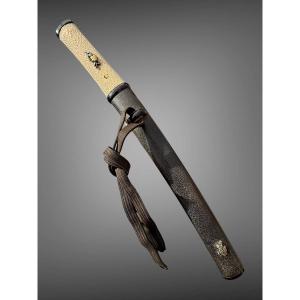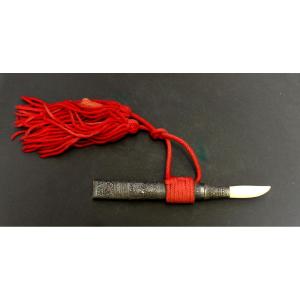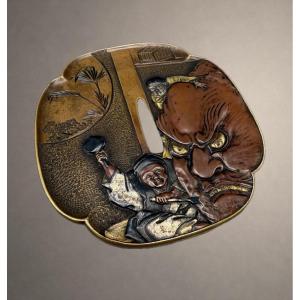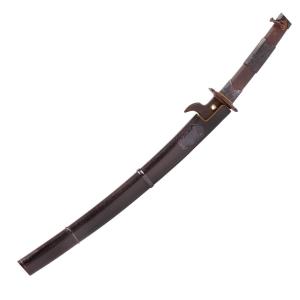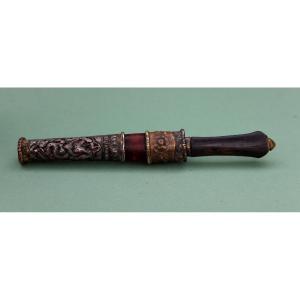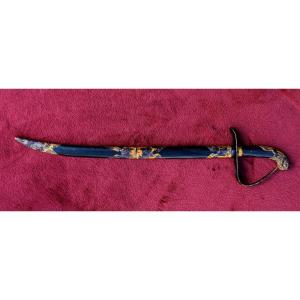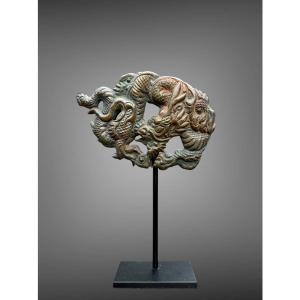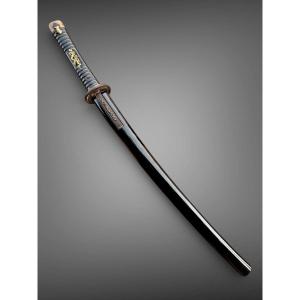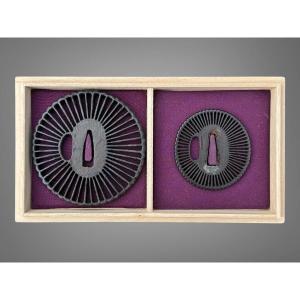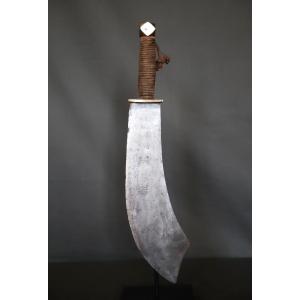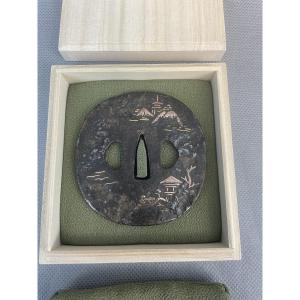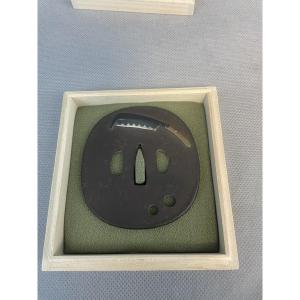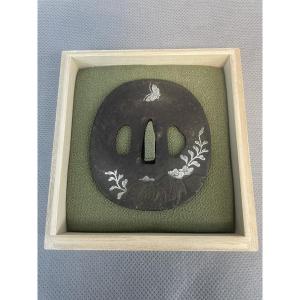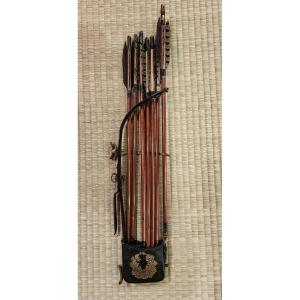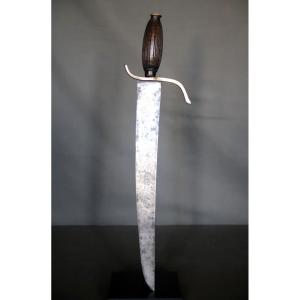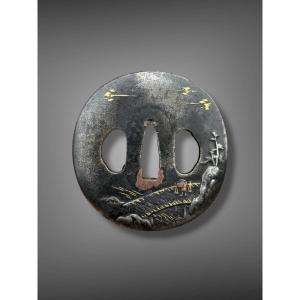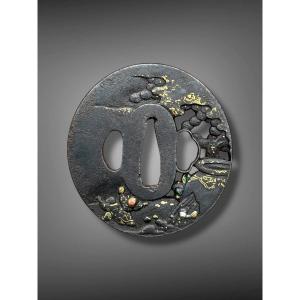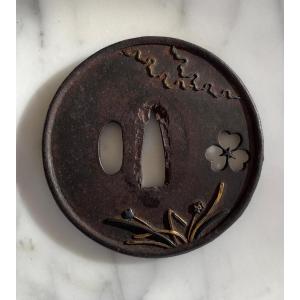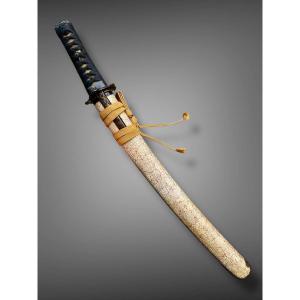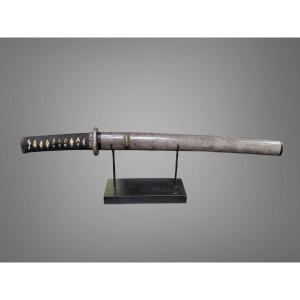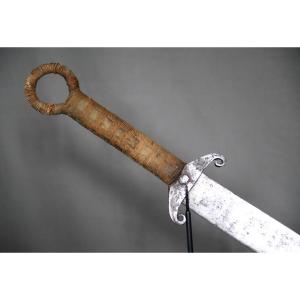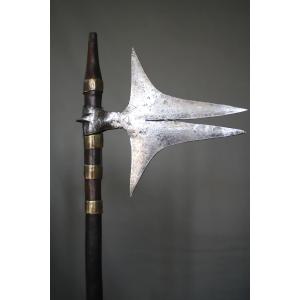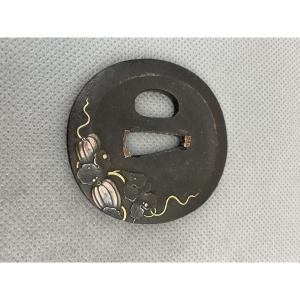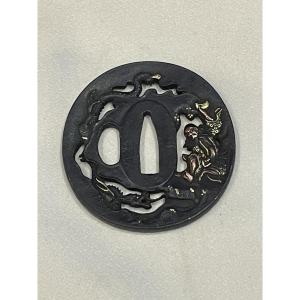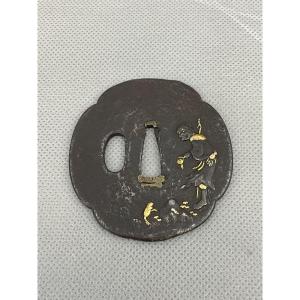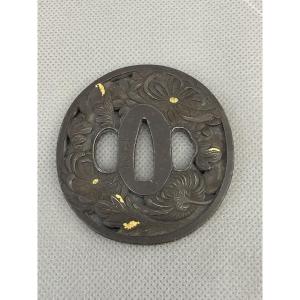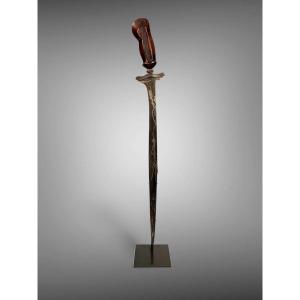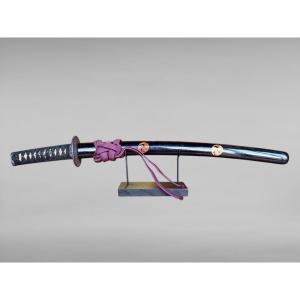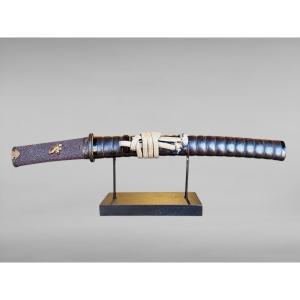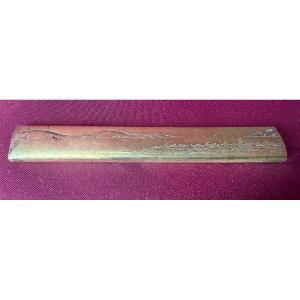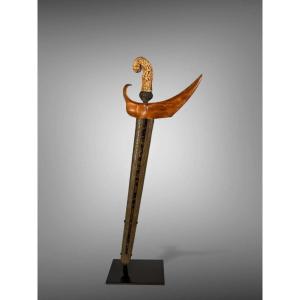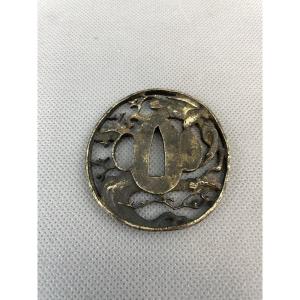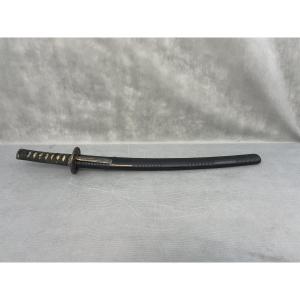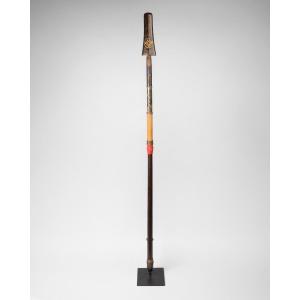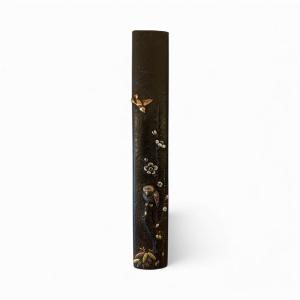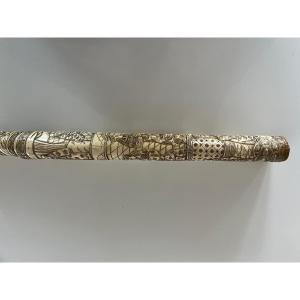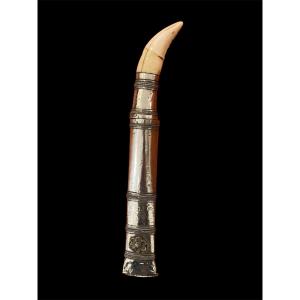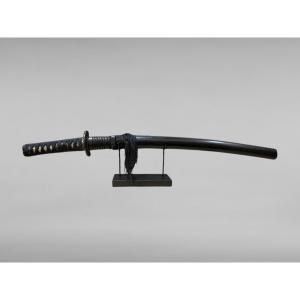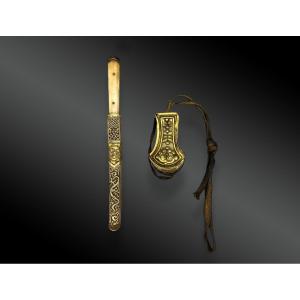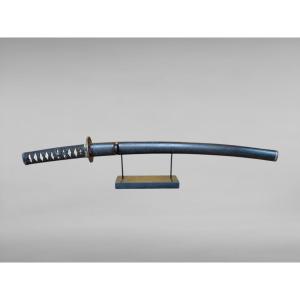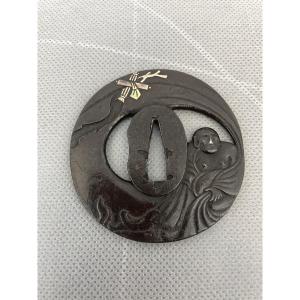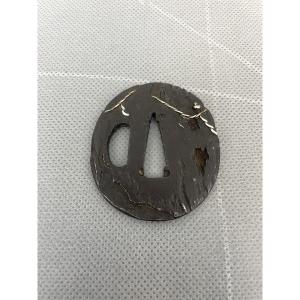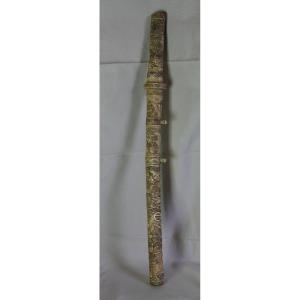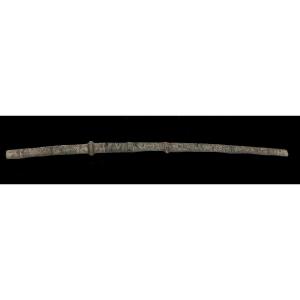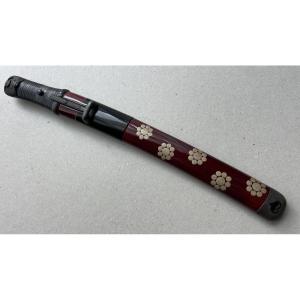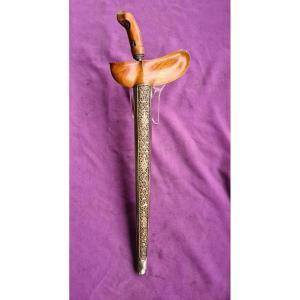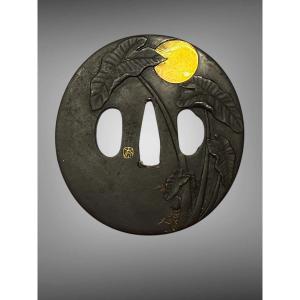Edged Weapons
Japanese Wakizashi Sword Attributed To Fujiwara Munemishi, Nbthk [...]
19th century
Antique Lao Silver-mounted Dha Knife With Repoussé Scabbard, Late[...]
19th century

Sculptural Narrative Tsuba — Kyōto (yamashiro-no-kuni) — Signed T[...]
19th century
19th-century Japanese Hachiwari ("skull Splitter" / "helmet Split[...]
19th century
Antique Tibetan Utilitarian Knife With Pierced Iron Scabbard, Lat[...]
19th century

Antique Vietnamese Ceremonial Sword In Lacquered Wood, Nguyễn Dyn[...]
19th century

Maedate Stamped And Finely Engraved Copper Depicting A Dragon In [...]
19th century
Daisho Of Kobushi-gata Tsubas In Iron Depicting Chrysanthemums - [...]
19th century
Dagger With A Thick Blade - Southern China, Vietnam, 19th Century
19th century
Short Chinese Sword Known As A Paidao - Southern China, Northern [...]
19th century
Tsuba Nagamaru-gata In Iron, Legend Of Shiba Onko, Edo Period (16[...]
19th century
Rare Thai Dha Sword - Thailand Or Burma (myanmar), 19th Century
19th century
Japanese Wakizashi Sword Mounted In Shirasaya With Nbthk Certific[...]
19th century
Japanese Katana Sword, Beautiful Finely Lacquered Saya - Edo Peri[...]
19th century
Japanese Katana Sword, Blade Decorated With A Horimono Dragon - E[...]
19th century
Carved Bone Kris (dagger) Handle Depicting A Demon - Indonesia, 1[...]
19th century
Japanese Wakizashi Sword Of A Samurai Of The Kii Clan, Signed Oit[...]
19th century
Antique Tsuba From The Late Edo Period, Made Of Shakudo (brass), [...]
19th century
Antique Tsuba From The Late Edo Period, In Sukashi (openwork) Sty[...]
19th century
Wakizashi, A Small Japanese Sword From The Late 19th Century, Car[...]
19th century


